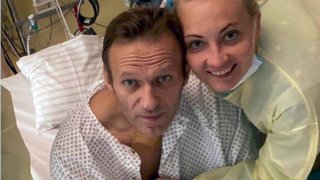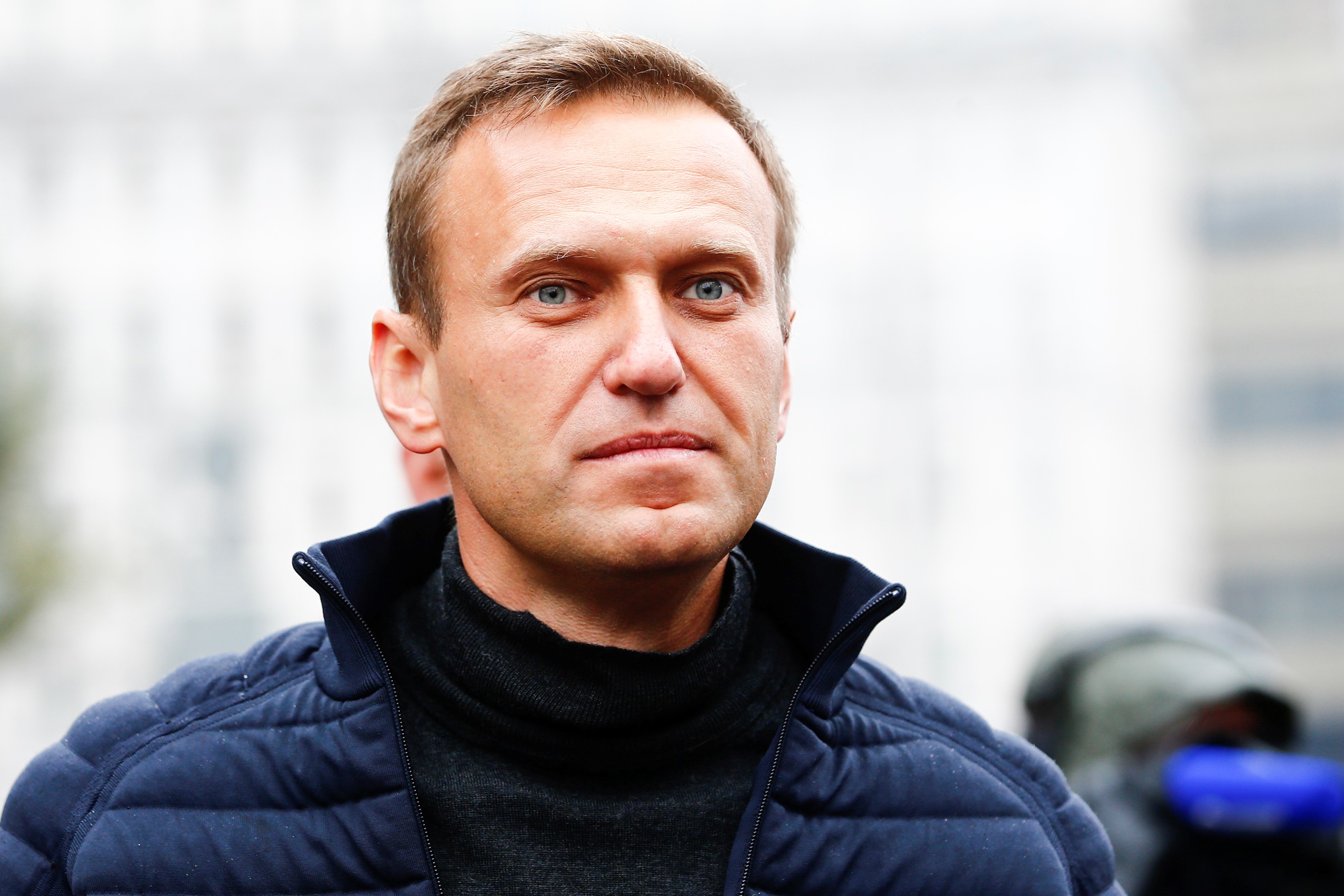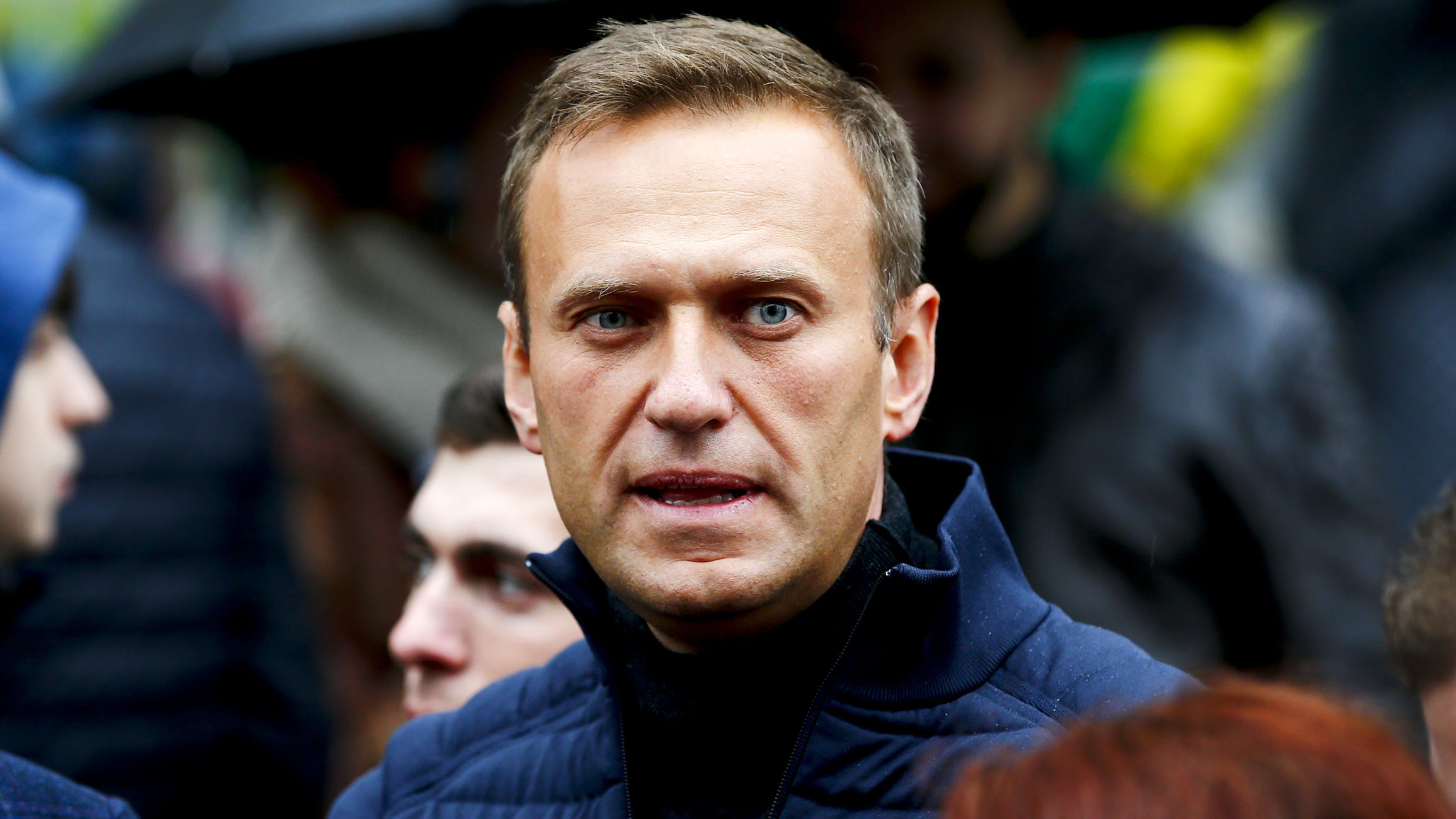
Russian opposition leader Alexei Navalny on Tuesday posted a picture of himself from his hospital bed in Germany where he's recuperating from being poisoned with a nerve agent, wryly joking about being able to breathe on his own.
“Hi, this is Navalny,” he wrote in the Russian-language post on Instagram in the first image of the 44-year-old since he was taken to Berlin's Charite hospital. The photo shows him being given a hug by his wife Yulia and flanked by his two children as he sits upright in his bed in a hospital gown.
“I have been missing you. I still can’t do almost anything on my own, but yesterday I managed to breathe on my own for the entire day,” he added in the post, which got over 1.1 million likes in several hours.
Separately, Navalny’s spokeswoman Kira Yarmysh tweeted that once he has recovered, Navalny plans to return to Russia, where he has supported opposition candidates and waged anti-corruption battles. “No other option has ever been considered,” she wrote.
We've got the news you need to know to start your day. Sign up for the First & 4Most morning newsletter — delivered to your inbox daily. >Sign up here.
More Alexei Navalny Coverage
Navalny fell ill on a flight from Siberia to Moscow on Aug. 20 and treated at a hospital in the city of Omsk. Two days later, he was flown to the German hospital, where he was kept in an induced coma for more than two weeks as he was treated with an antidote. On Sept. 7, doctors said his condition had improved enough for him to be brought out of the coma.
On Monday, the hospital said he had been removed from a ventilator and was able to leave his bed for “short periods of time.”
In his Instagram statement, Navalny displayed his well-known sarcastic humor when he talked about being able to breathe without a ventilator.
“Just on my own, no extra help, I didn't even use the simplest valve in my throat,” he said. "I liked it very much. It’s a remarkable process that is underestimated by many. Strongly recommended.”
Despite his recovery, doctors have said they cannot rule out long-term health issues associated with the poisoning.
Leonid Volkov, a top associate of Navalny, refused to give any details on his condition or his possible return when reached by The Associated Press.
A German military lab has determined that Navalny was poisoned with Novichok, the same class of Soviet-era agent that Britain said was used on former Russian spy Sergei Skripal and his daughter in Salisbury, England, in 2018. On Monday, the German government said independent tests by labs in France and Sweden backed up its findings.
The Hague-based Organization for the Prohibition of Chemical Weapons also is taking steps to have samples from Navalny tested at its designated labs, Germany has said.
The Kremlin has bristled at calls from German Chancellor Angela Merkel and other leaders to answer questions about the poisoning, denying any official involvement.
French President Emmanuel Macron’s office said he had expressed “deep concern over the criminal act” that targeted Navalny directly with Russian President Vladimir Putin on Monday. The Kremlin said Putin in the call “underlined the impropriety of unfounded accusations against the Russian side” and emphasized Russia’s demand for Germany to hand over analyses and samples.
Kremlin spokesman Dmitry Peskov told reporters Tuesday that Russia is puzzled by Germany's refusal to share Navalny's analyses and other medical data, or compare notes with the Russian doctors who said they found no trace of poison in his system while he was at a hospital in the Siberian city of Omsk.
“Russia has been absolutely open for cooperation in determining what happened,” Peskov said. “Russia needs cooperation with the German side in getting the patient's biological samples to be able to advance.”
Russian Foreign Minister Sergey Lavrov, who canceled a scheduled trip Tuesday to Berlin, said Russian authorities have conducted a preliminary inquiry and documented the meetings Navalny had before falling ill, but he emphasized they need to see the evidence of his poisoning to launch a full criminal investigation.
Lavrov said Navalny’s life was saved by the pilots of the plane who quickly landed in Omsk after he collapsed on board and by the rapid action of doctors there. He accused the West of trying to smear Russia and use the incident as a pretext for new sanctions against Moscow.
In a phone call Tuesday with German Foreign Minister Heiko Maas, Lavrov warned him against politicizing the situation with Navalny, the Russian Foreign Ministry said. Lavrov said Moscow would view Germany's continued stonewalling of Russia's request for analyses and samples as a “lack of desire to help determine the truth as part of an objective and thorough investigation.”
Berlin has rejected suggestions from Moscow that it is dragging its heels on sharing evidence. Asked why no samples from Navalny have been given to Russia, a German Foreign Ministry spokeswoman said Monday that “Mr. Navalny was in Russian treatment in a hospital for 48 hours.”
Sergei Naryshkin, the director of Russia's Foreign Intelligence Service, said that studies by Russian labs found no indication Navalny was poisoned while still in Russia.
“It's a fact that at the moment when Navalny was leaving Russia, there were no toxic agents in his body,” Naryshkin said in remarks carried by Russian news agencies. “In that context, we have many questions to ask the German side.”
He emphasized that Russia has fully met its obligations under the international chemical weapons ban and completely destroyed its chemical weapons stockpiles.
“It's disinformation to say that Russia has production assets or old stockpiles of military nerve agents,” he said.
Most of Germany’s political parties have joined Merkel in calling for an investigation, but leaders in the far-right Alternative for Germany, known for its pro-Moscow sympathies, have said Berlin should not be involved. On Tuesday, it invited media to a discussion with a Russian lawmaker on “the Russian view of the Navalny case.”



